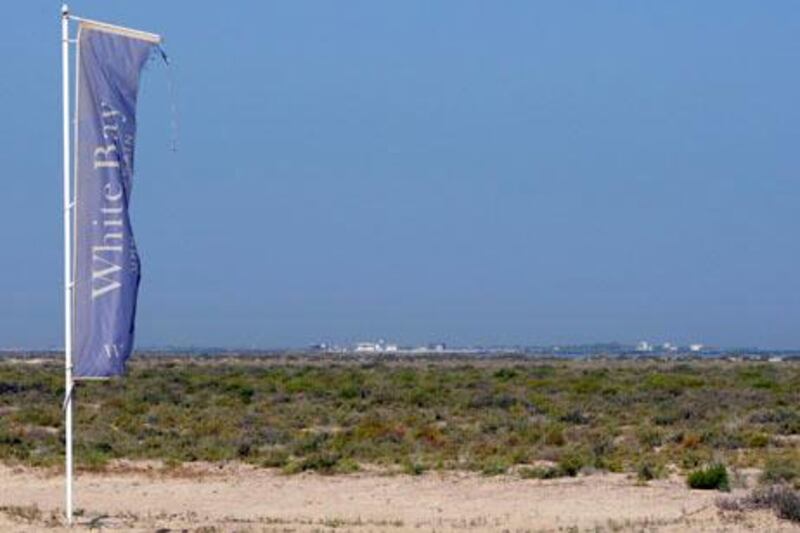The developer Al Murjan's move to file for bankruptcy will set important precedents in the UAE, in a case that will be closely watched by thousands of investors in uncompleted projects.
The court's decisions in the case could create a framework for what investors and other creditors can expect if other property developers go under. Although there are federal laws covering bankruptcy, legal experts say they have almost never been tested.
"A lot of it is cultural," said James Farn, the head of banking and finance at the Abu Dhabi office of the law firm Hadef & Partners. "There is a perceived stigma."
Al Murjan Real Estate is an equal partnership between Sheikh Abdullah bin Rashid, Deputy Ruler of Umm al Qaiwain, and Al Khalijia Investments, according to a letter sent to investors by the liquidators assigned to the case.
The partnership planned to build a resort named White Bay on the coast of Umm al Qaiwain, promising more than 8,000 residential units, a shopping centre and a marina covering 19 million square feet on two islands.
The project went on sale in 2007, with villa prices well below the rates charged in Dubai at the time. Buyers typically put down deposits of about Dh1 million (US$272,257), representing 50 per cent of the sale price, according to Ludmila Yamalova of HPL Yamalova & Plewka, which is representing three clients who bought units in the project.
But the developers were unable to win approvals from Umm al Qaiwain to build the project, according to the liquidators. In addition, "nearly 50 per cent of the buyers failed to pay the amounts due", which has affected the company's ability to arrange financing.
Sheikh Abdullah filed a lawsuit to force the liquidation, according to the letter.
Lawyers say that with little track record for bankruptcies, it is difficult to predict how the case will unfold.
"It [the bankruptcy law] hasn't been tested in general, let alone by property developers," said Ms Yamalova.
Most bankruptcy laws date to 1973 and were updated in 1993 under the umbrella of the Commercial Transactions Law. In recent years the UAE Government has discussed updating and consolidating the laws, but there have been no formal proposals.
Under the current system, courts have tremendous leeway to decide the case, which is one reason businesses tend to avoid bankruptcy proceedings, said Mr Farn. Any bankruptcy filing is further complicated by the UAE's complex criminal code, which calls for steep penalties for anyone not fulfilling their financial obligations.
"It's not necessarily a debtor-friendly process," said Mr Farn.
Investors are likely to be given the opportunity to vote on any liquidation plan. "But they are not going to get full recovery."
At this point it is unclear who might hold claims against Al Murjan and what status they might be awarded by the court. A meeting will be scheduled within 45 days for creditors to register their claims, say the liquidators.
"The big worry so far is that there might be more secured creditors," said Ms Yamalova.
To the investors, the liquidation filing was bad news, she said. Most still want the project to go forward. And rather than offering a chance for recovery, the filing may remove their ability to file legal claims in court.
"At this point, if anything, it has the potential of taking away any protection [for investors]," said Ms Yamalova. "It's an easy path to dispose of everybody at the same time."
She fears the case "may set precedent for other developers to follow suit".
kbrass@thenational.ae
Al Murjan's bankruptcy to blaze new UAE legal ground
Developer's unprecedented move will test virtually unused federal bankruptcy laws, with the case over the unbuilt White Bay resort likely to be watched by thousands of investors in uncompleted projects.

Editor's picks
More from the national




